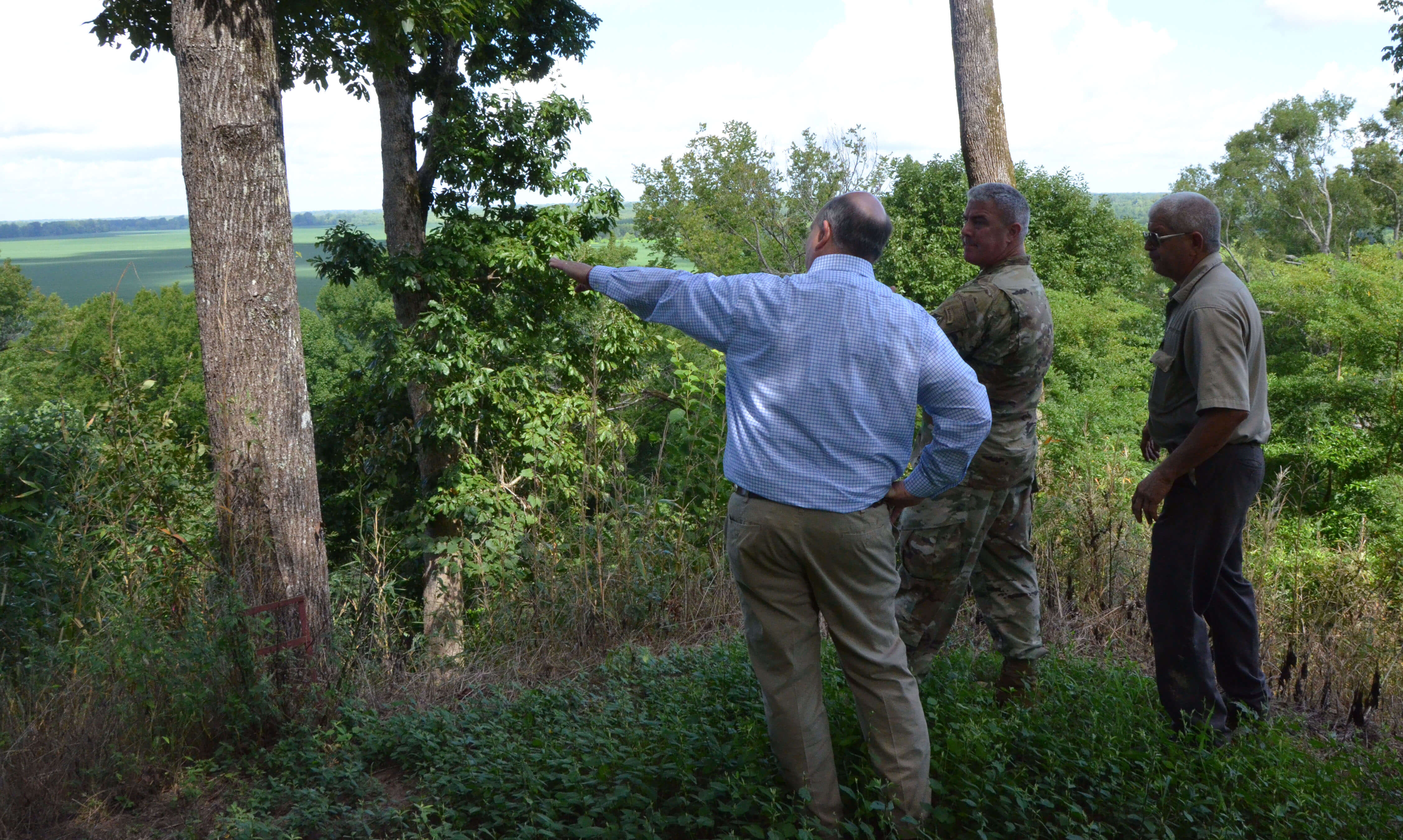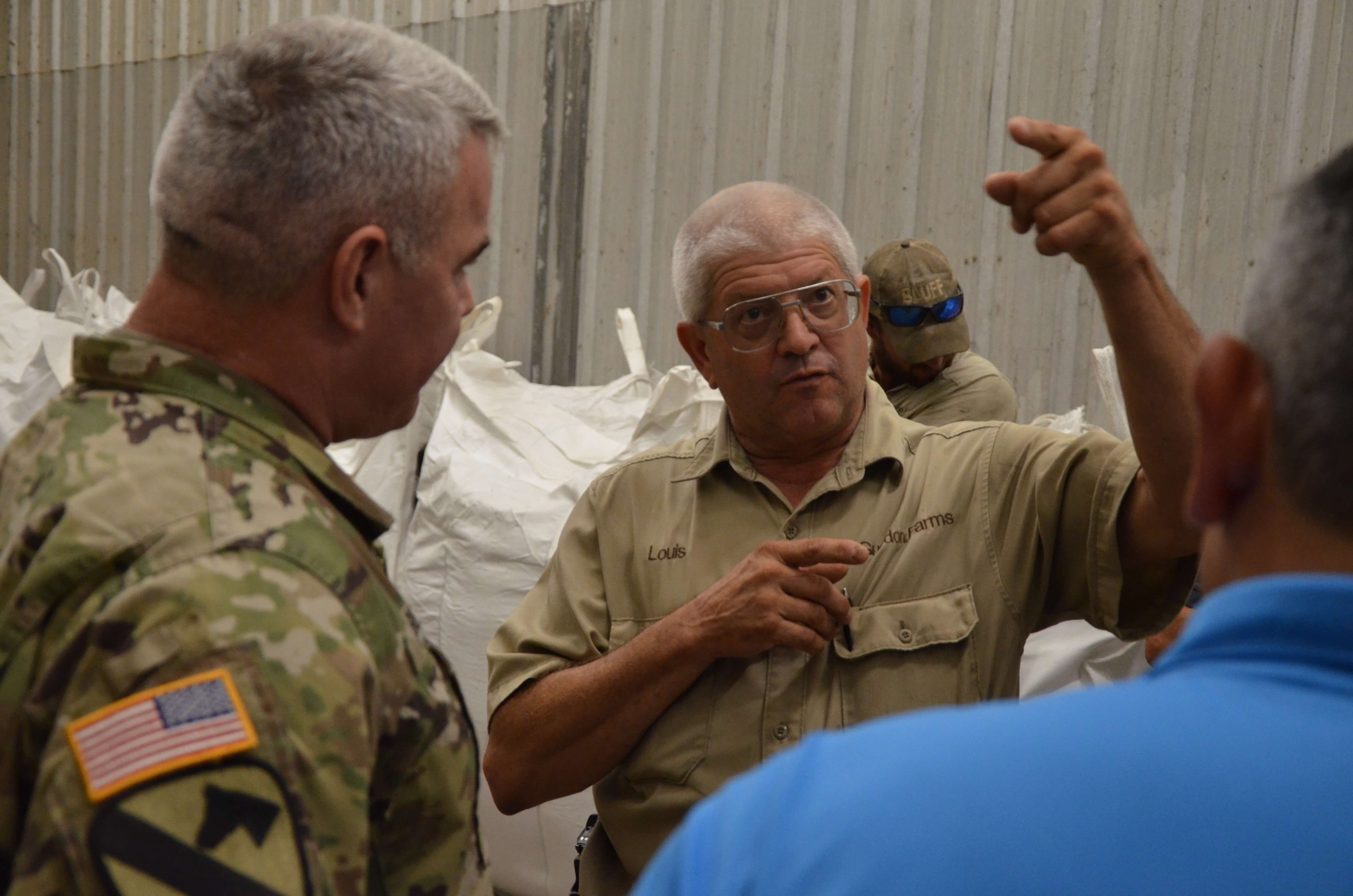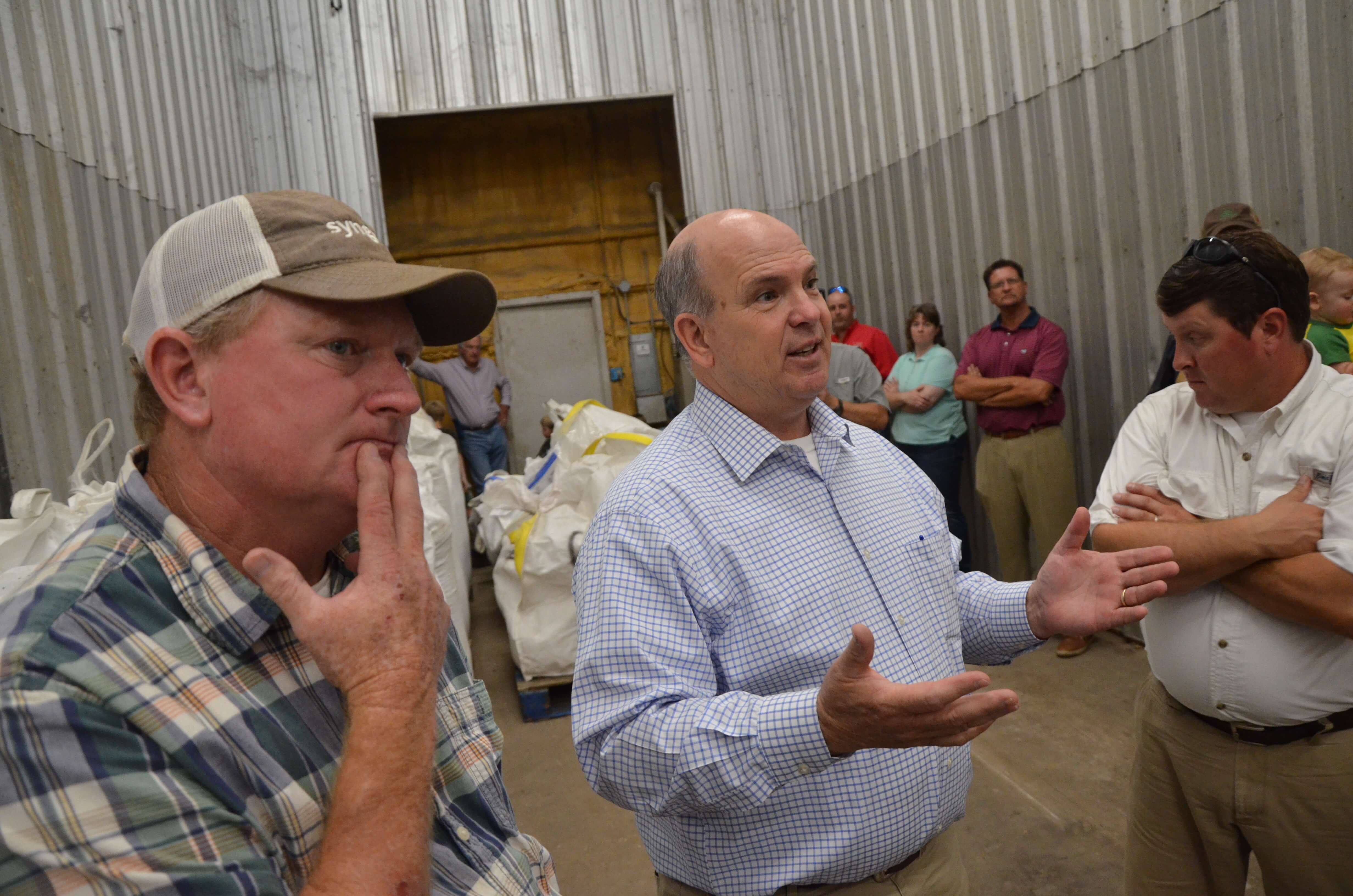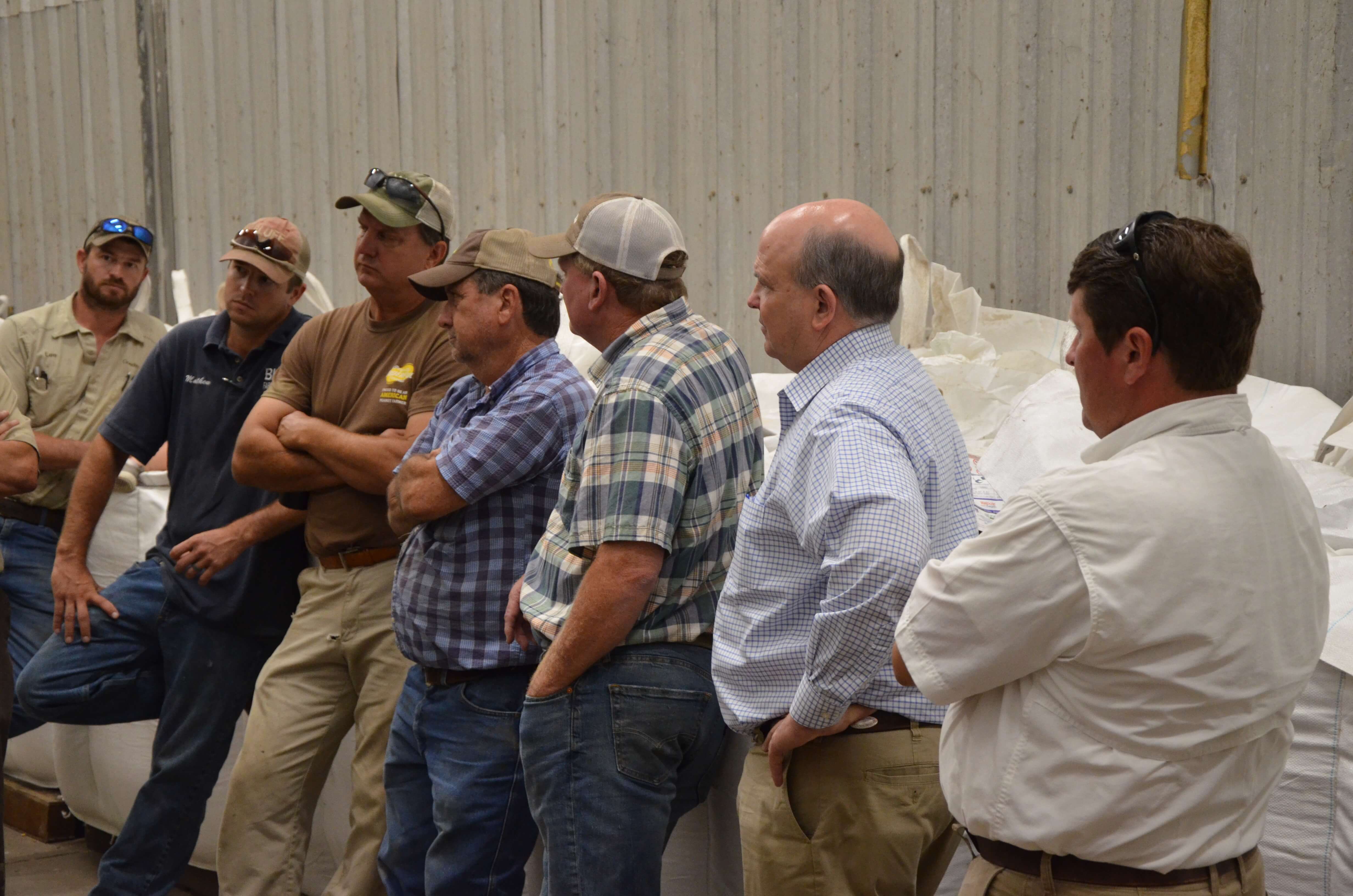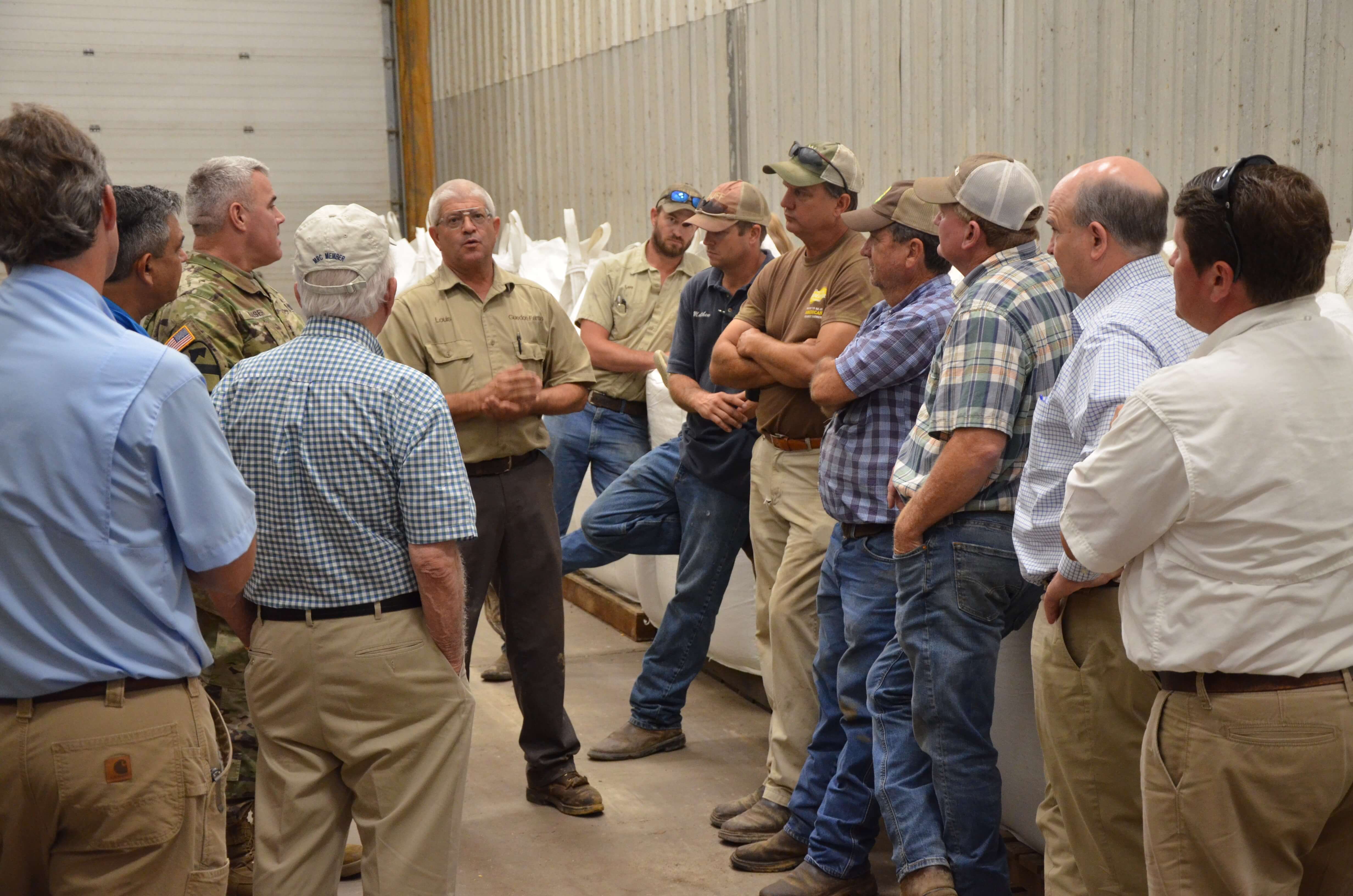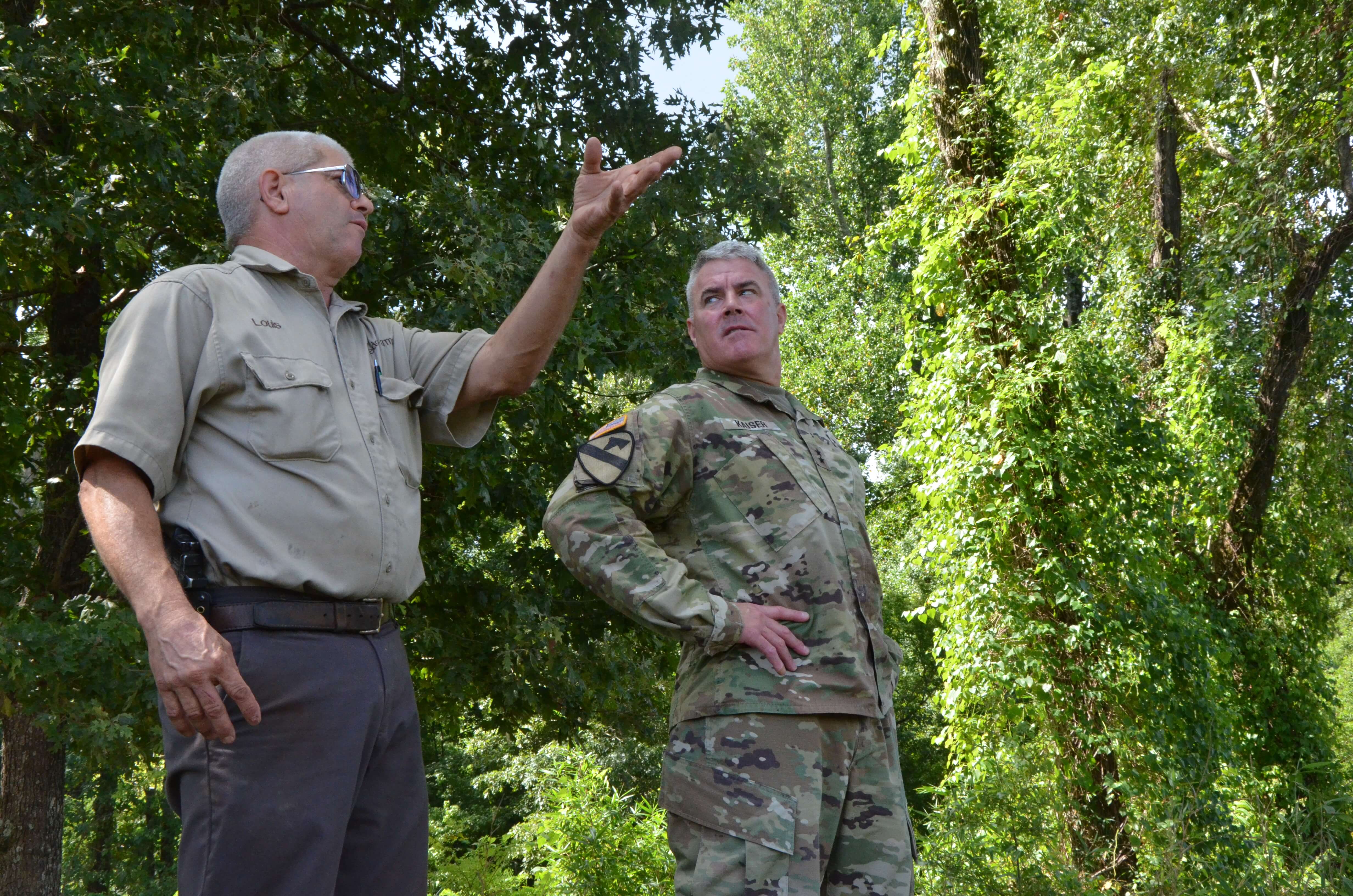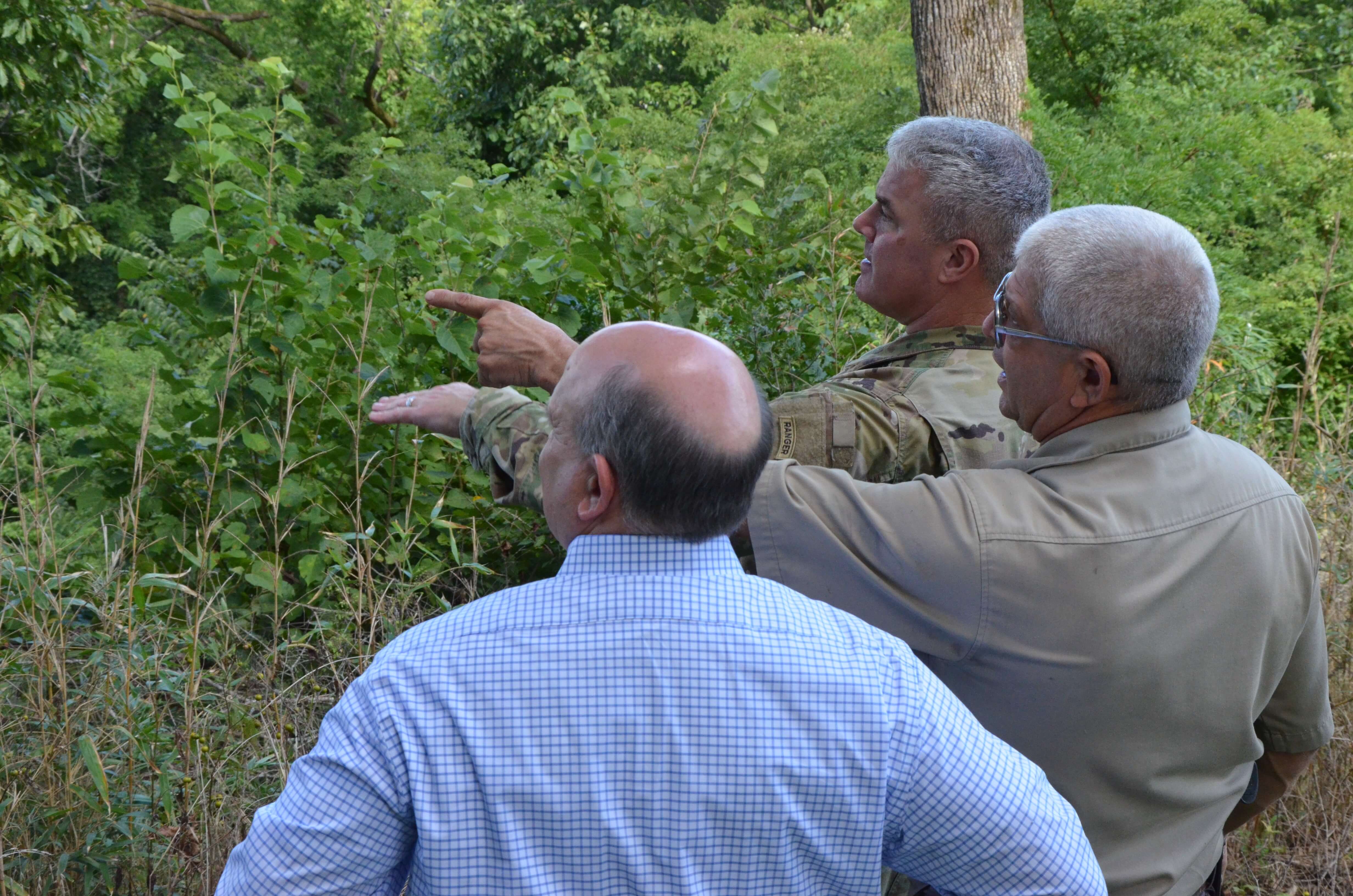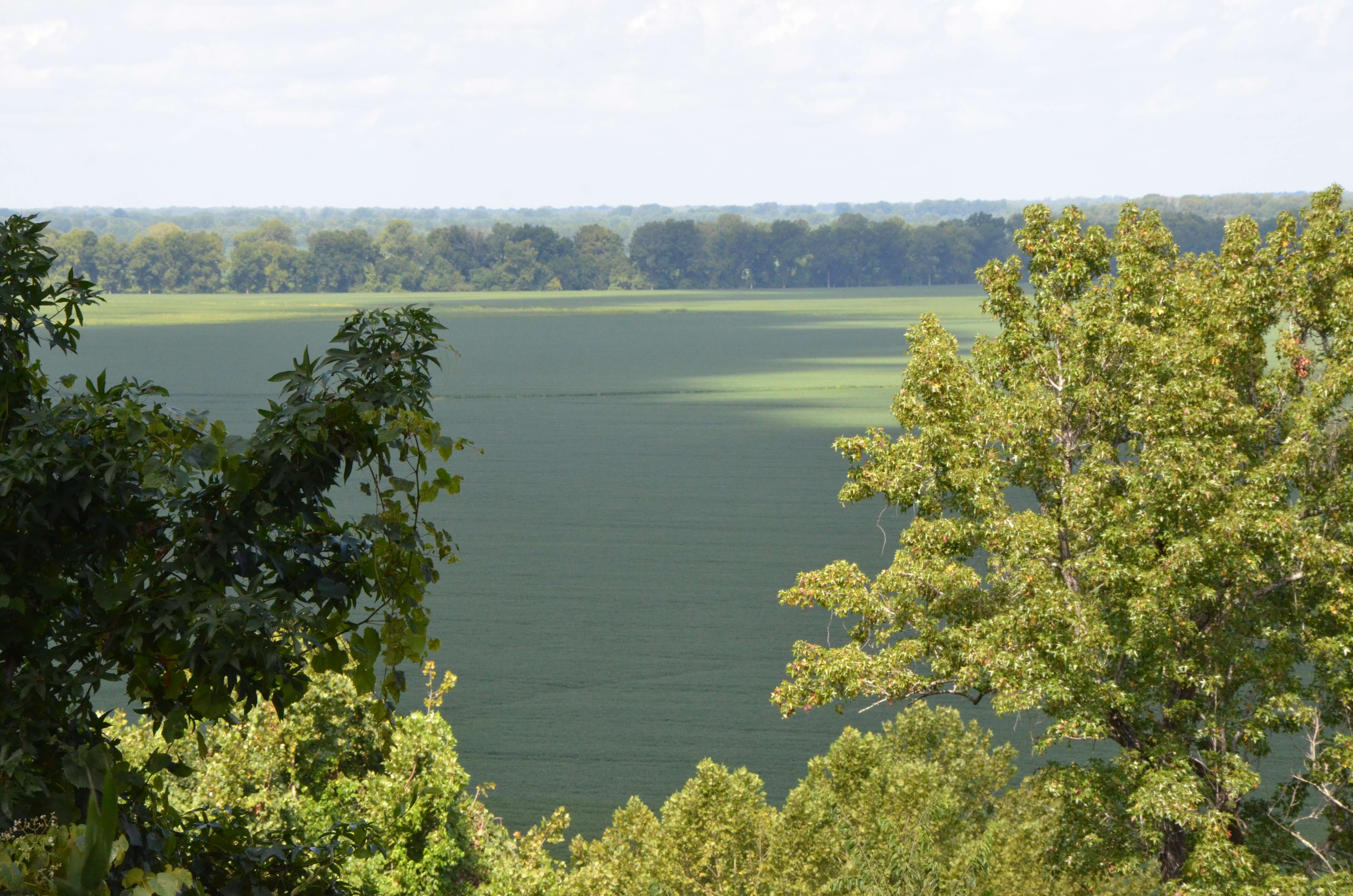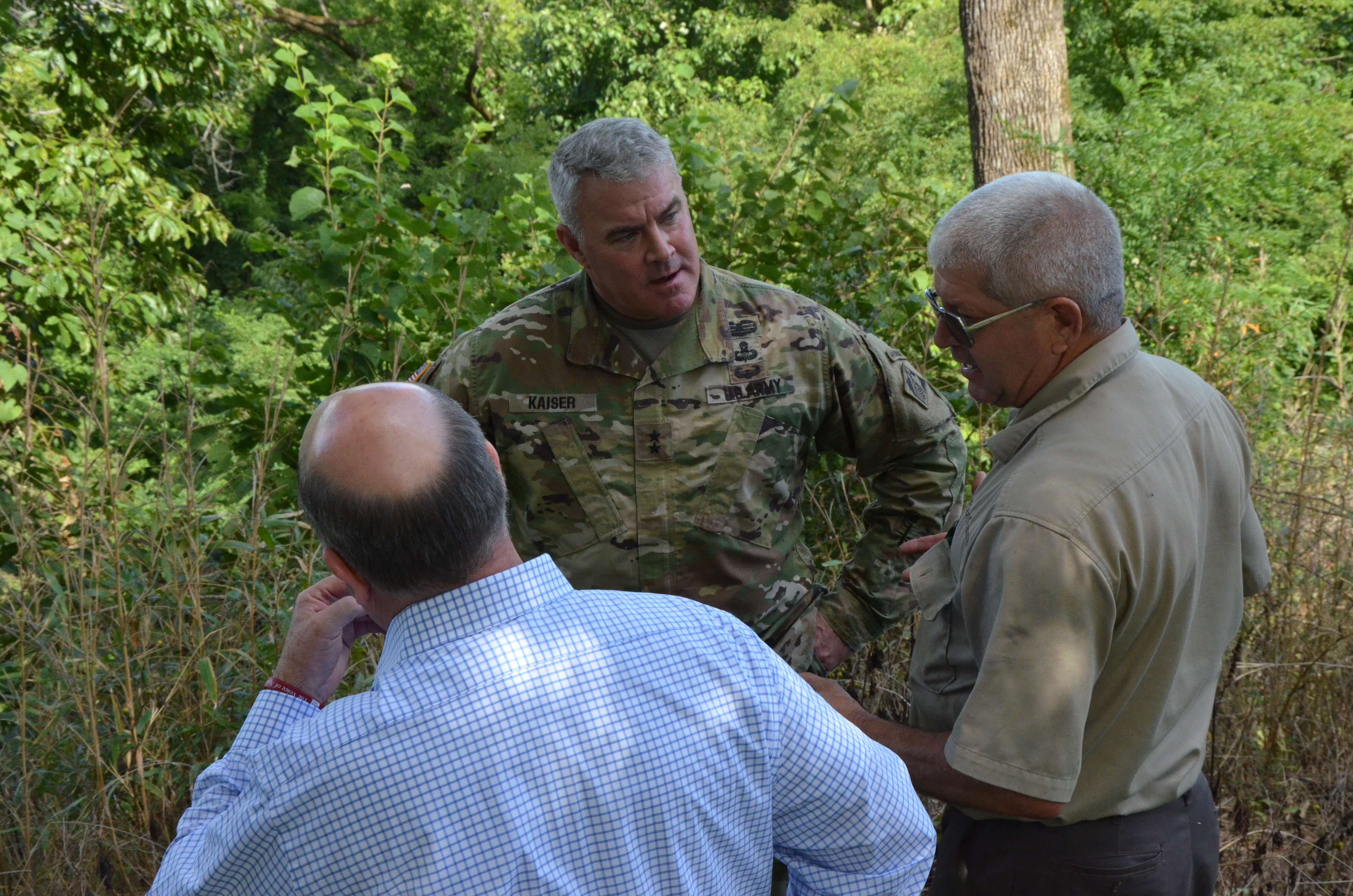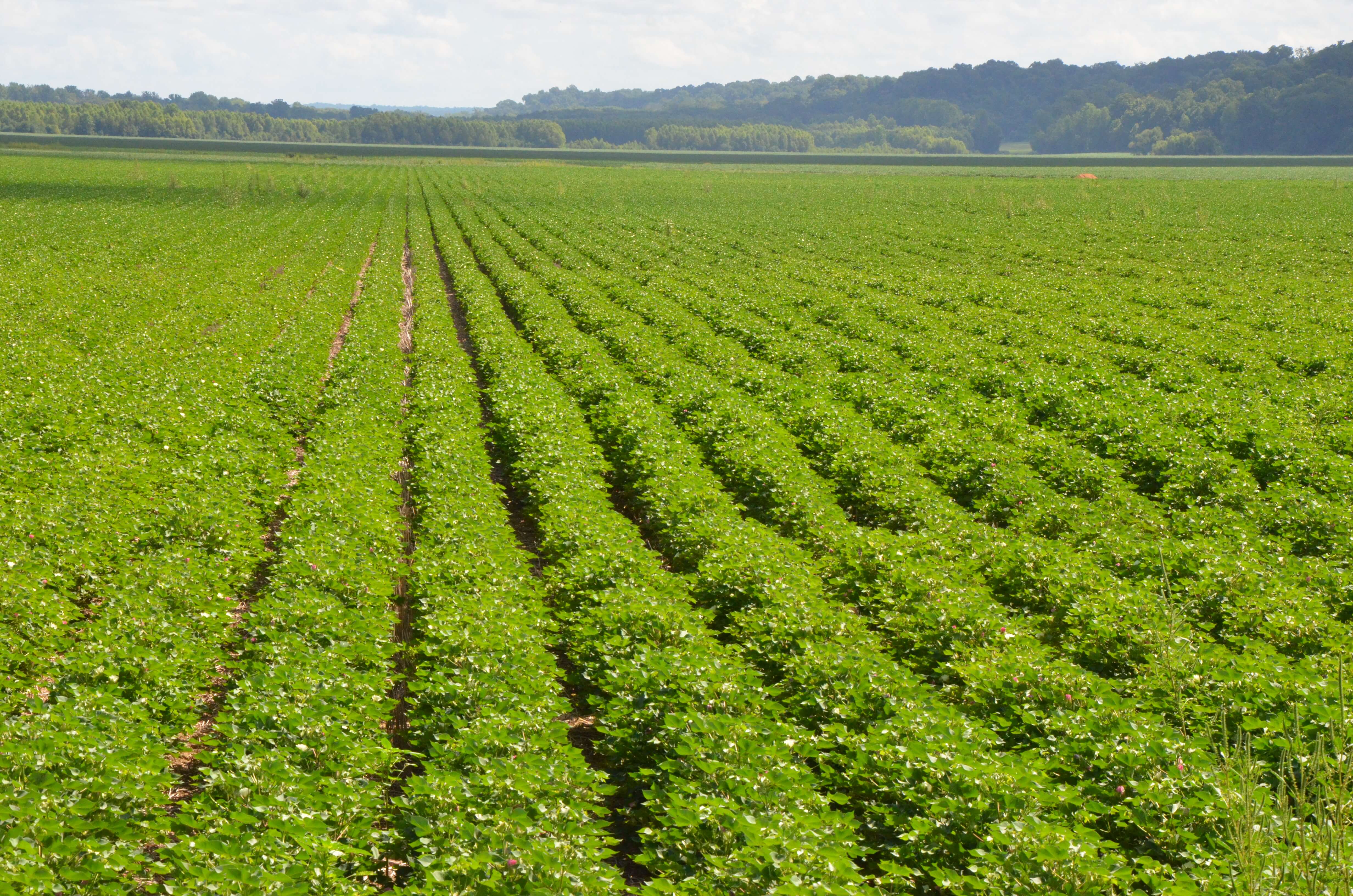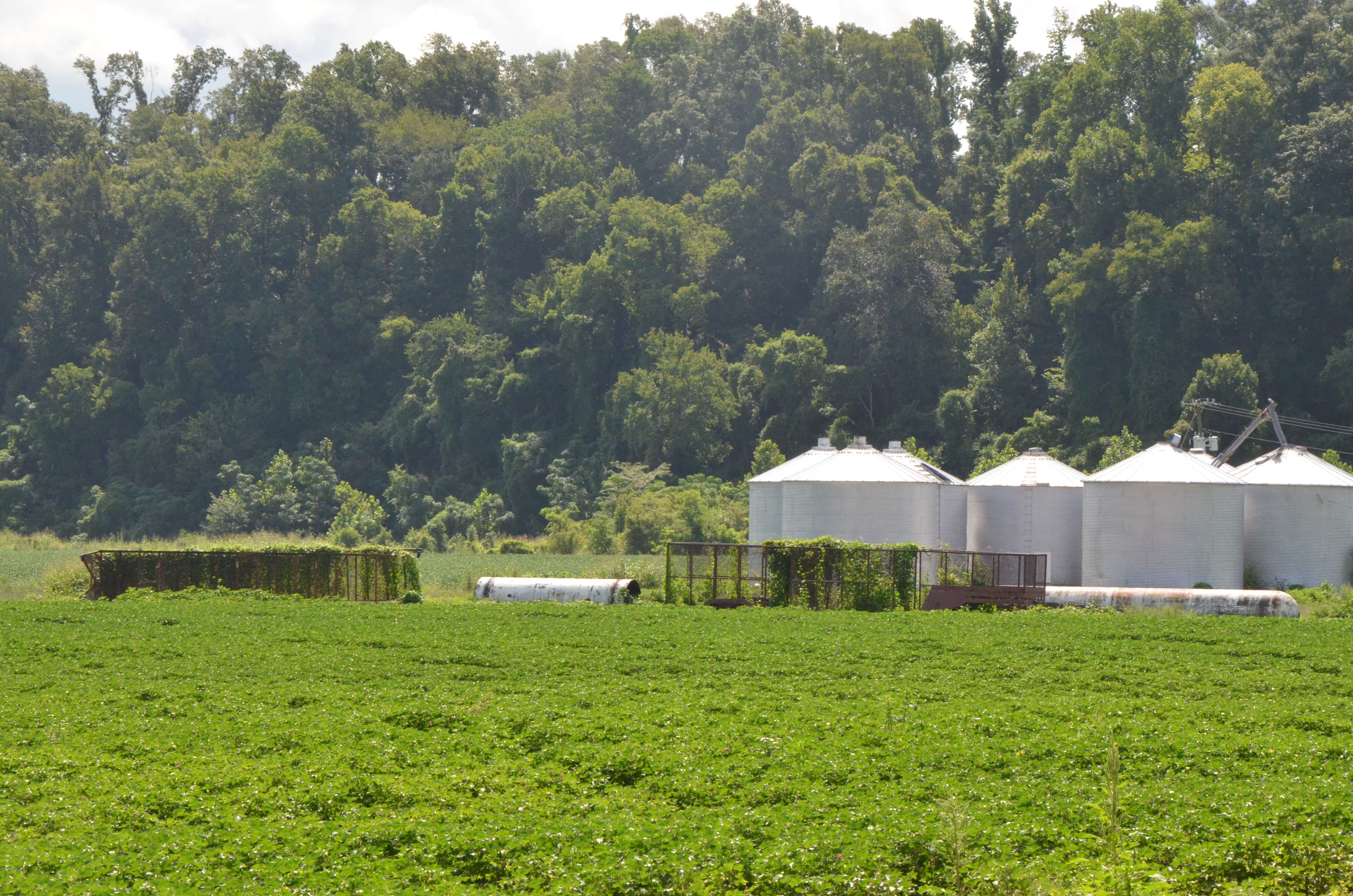The sun sizzles and beats down on hundreds of acres of crops despite the ominous rain clouds thundering in the north. A group of people stand on a bluff overlooking the scene, deep in discussion over what is to become of the magnificent land sprawled before them.
The Mississippi River rolls just miles west of where they stand. Its waters are the main topic of discussion for the group of farmers, Mississippi Farm Bureau Federation staff and U.S. Army Corps of Engineers staff.
“We’ve noticed a change in the river. Every spring at some time, when you plant below the 50-foot line, you’re starting to roll the dice (against the Mississippi River). It didn’t used to be like that,” Louis Guedon, owner of the land in Jefferson County the group stands on, said to Maj. Gen. Richard Kaiser of the Army Corps of Engineers.
In the past, farmers could plant crops along the Mississippi River without worrying about flooding every year, according the Guedon.
“Now, it seems as though farmers are battling flood waters every single year,” the fifth-generation farmer said.
Guedon and his family farm approximately 12,500 acres of corn, cotton and soybeans, in addition to raising several hundred head of cattle. The family has lived here for 150 years, so they are extremely familiar with the nature of the Mississippi River.
“When I was a young man, we had backwater every once in a while,” Guedon said. “In ’73, we had a huge flood that reached 57-foot on the Natchez (Mississippi River) gauge. At the time, my uncle said, ‘You need to look at this because you’ll never see it again.’ Well, we had 57-foot on the Natchez gauge in February and March of this year.”
As Guedon explained how the Mississippi River affects the bottom line of farmers, Howard Jones of Jones Lumber Company in Natchez shared how the yearly river flooding impacts timber.
“My concern is not my mill, which sits on the river,” Jones said. “My major concern from the river is all the batture land that’s (planted) in timber land. The frequency of the water and the duration of the floods is killing the timber. The timber is degrading. The farm land is degrading. The sand deposits are making our ground sterile. It is a huge problem. My question is – what is different now than it was back then?”
Kaiser took this opportunity to explain the purpose of his trip and his desire to help the people before him.
“Visits like this are priceless,” he said. “So, in my work, quite often we go up and down the river and we hear testimony from people who are affected by the river. We take that testimony and try to figure out what is the best solution for our country and for the river. You can hear about something, but until you get on the ground and see the lives that are affected it’s different.”
Several factors have changed regarding the Mississippi River since the 1970’s, according to Kaiser. The amount and intensity of rainfall over a short period of time areas around the Mississippi River receive each year is eight percent higher now than 40 years ago.
“We’re seeing the channel filling in with sediment,” Kaiser said. “So, you’ve got less capacity to carry the water. We’re aware of that and we’re working to figure out what is the best way to move all this stuff out of here and reduce some of the problems you’re seeing.”
Kaiser said the Army Corps of Engineers must study what is happening in order to address the flooding problems.
“We recognize that there are things going on with the river,” he said. “In the past, we have done some studies in this area that really revolve around the Red River, the Washita, the Atchafalaya and the Mississippi. I am seeking money (from Congress) to finish that study to find solutions to reduce the flooding that we experience in this region.”
Kaiser plans to take testimony he gathered during his visit to Congress, in hopes it will convince them of how important it is the Army Corps of Engineers finish their study.
“We can’t feed the world if we don’t have good farmland,” he said. “We can’t feed the world if we can’t get (our products) down the river to New Orleans. There is a solution out there, it’s just more complicated than it sounds.”
Guedon acknowledged that the Army Corps of Engineers would eventually find a solution, but the government needed to assist farmers losing crops to the flood waters in the interim.
Federation President Mike McCormick agreed with Guedon, sharing some of the policies the Federation is pushing regarding crop insurance to assist farmers.
“I don’t think there’s an easy fix to this problem, but at least we are taking steps to help farmers affected by it and to correct the problem,” McCormick said. “The Army Corps of Engineers understands this is a problem and they’re willing to work on it. That’s a huge step forward.”
Kaiser asked the farmers in attendance to be patient and keep an open line of communication with the Army Corps of Engineers. He assured them he would do the same.

